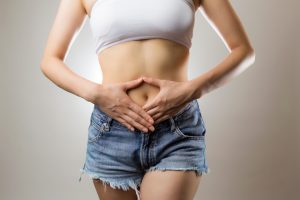Want to Know How to Feel Good?
Hi Everyone! Okay, there are a lot of components in creating a state of mind and feeling good, and you know that I am going to say that tiptop gut health is imperative to it. But this post is about some other matters!
Although this post touches on gut health, I will talk about 4 functions to focus on to feel good and how to activate them yourself.
It’s easier than you think. Read on!
What Are the Secrets to Feel Good?
What Is the First Secret to Feeling Good?
How Do You Increase Dopamine Naturally?
What Is the Second Secret to Feeling Good?
What Is the Third Secret to Feeling Good?
Some Signs of Serotonin Deficiency
What Is the Fourth Secret to Feeling Good?
How Do You Optimise Your Feel Good Hormones?
What Are the Secrets to Feel Good?
For the sake of this post, the secrets to feeling good are wrapped up in hormones that are also neurotransmitters.
Hormones (neurotransmitters) are your body’s chemical messengers, carrying, boosting, and balancing signals between nerve cells and target cells around the body.
They are released by glands into your bloodstream and rise and fall throughout the day and night, acting on various organs and tissues.
Neurotransmitters manage everything from our heartbeat to our memory, for how you feel and your body functions.
It’s a complex and highly interconnected system, with over 60 neurotransmitters (e.g., amino acids, peptides, purines), and imbalances occur if optimal health isn’t achieved in the body.
Now, amongst these neurotransmitters and hormones, there are ‘feel good’ hormones that you have the power to control.
These ‘feel good’ hormones are:
- Dopamine (pleasure and motivation hormone)
- Oxytocin (love)
- Serotonin (happy hormone)
- Endorphins (pain relief and well-being).
D.O.S.E.
Use the following as a checklist to encourage the release of and activate your daily D.O.S.E!

What Is the First Secret to Feeling Good?
The first secret to feeling good is the hormone and neurotransmitter: Dopamine!
Dopamine is part of our brain’s pleasure and reward system. It’s often called the ‘motivation molecule.’
It is all the things that trigger that intense feeling of reward, like sex, food…winning an award!
It’s that feeling you get when you do something like going on a scary ride at the amusement park – or jumping off a boat in the middle of the ocean, as I did recently!

Dopamine is that feeling of pleasure washing over you while your brain feels perked up.
About 50% of dopamine is produced in the gut by enteric neurons and intestinal epithelial cells (more about their role, with serotonin and other neurotransmitters in the brain-gut axis another time!).
The rest is produced in the brain’s substance nigra, ventral tegmental area, and hypothalamus.
This is in the process of converting the amino acid of tyrosine into another amino acid called L-dopa! L-dopa then undergoes another change, where enzymes turn it into dopamine!

The role of dopamine is involved the following:
- punishment and reward
- voluntary movement
- inhibition of prolactin production
- lactation
- blood vessel function
- kidney function
- heart rate
- motivation
- behavior and cognition
- sleep
- dreaming
- working memory
- attention
- learning
- mood
Dopamine transmission levels increase in response to ‘rewards’.
Its involvement in reinforcement is what makes us go back for more! More food, more sex, more scary rides – more jumps into the water!

Unfortunately, this is one of the reasons why people get hooked up on addictions like shopping, gambling, and gaming!
Dopamine deficiency presents itself in back pain, constipation, muscle cramps, low mood, feeling hopeless, lack of motivation, and full of brain fog (despite low moods being mostly linked with serotonin deficiency).
Dysregulation of dopamine shows itself in conditions such as Depression, Parkinson’s disease, and Irritable Bowel Disease.
You may be interested in reading How to Prevent Alzheimer’s Disease.
How Do You Increase Dopamine Naturally?
Yes, you can increase dopamine and reset your zest for life!
1. Reduce inflammation, improve gut health, and ensure nutrition and absorption are maximized by following an anti-inflammatory lifestyle.
2. Regular movement in the form of anti-inflammatory exercise – stimulating the vagus nerve, increasing blood flow to the brain, and promoting neurogenesis.
Proper exercise stimulates the immune system and produces an anti-inflammatory response.
3. Tyrosine plays a critical role in dopamine production, so boosting levels with tyrosine-rich foods like bananas, pumpkin seeds, chicken, and avocados is a good way.
Tyrosine can also be made from phenylalanine, another amino acid found in many protein-rich foods like turkey and eggs!
Have some Dairy-free Scrambled Eggs or an Asparagus, Zucchini & Avocado Salad!
These provide an extra boost of memory and mental performance!
Needless to say, you always need complete nutrients to allow for conversions and synthesis in the body.
Like iron, omega-3 fatty acids, and B vitamins, for instance, concentrating on tyrosine alone won’t fix it if your body lacks good nutrition.
4. Sunlight for Vitamin D. Especially in the morning, setting the circadian rhythm.
5. The practice of meditation, since consciousness change may trigger its release.
6. Listen to music. Even the thought of listening to your favorite music can release dopamine!
7. Sleep regularly and for reasonable amounts of time. Lack of sleep disturbs circadian rhythms.
8. Massage and touch – reduces cortisol, stimulates the vagus nerve, and increases oxytocin (see below!).

What Is the Second Secret to Feeling Good?
The second secret to feeling good is the hormone and neurotransmitter Oxytocin!
It is produced in the hypothalamus and transported to and secreted by the pituitary gland at the brain’s base.
The way to feel some of the oxytocin’s magic is that wonderful sense of well-being that occurs when you hug someone.

Or when skin is touched, in massage, holding hands, making love.
Or spending time with your favorite pet! Oxytocin levels rise in both pets and owners when they have time to snuggle with each other!
It’s not just that, though. Oxytocin plays a huge role in female reproductive functions.
Oxytocin is present during labor, increasing uterine motility, which causes uterus or womb contractions.
As the cervix and vagina widen in labor, oxytocin is released. Further contractions enable the widening to increase.

That overwhelming love feeling you have with a baby is what oxytocin is responsible for.
It fosters the bond between mother and child immediately after birth and affects milk release from mammary glands for breastfeeding.
That sense of bonding, when entwined with music, increases oxytocin levels if you are in a band or choir together.
Practicing random acts of kindness boosts oxytocin levels, too!
Ensure that you top up your oxytocin levels and maintain real contact with people and animals. Socialize, touch, and hug! Our immune relies on socializing, too.
What Is the Third Secret to Feeling Good?
The third secret to feeling good is ensuring that gut dysbiosis does not suppress the hormone and the neurotransmitter serotonin.
Serotonin is one of the most important signaling molecules within the gut.
It plays a pivotal role in initiating secretory and motor reflexes. Serotonin keeps your appetite and satiety in check.

It is serotonin that kicks in when you have eaten something that your body does not like.
It lets the brain know it is time to dispel it as soon as possible.
90% of serotonin is in the gut and stored in the intestinal mucosa.
This is why, as I always mention, depression, low moods, and tearfulness are linked to an unhappy gut and low serotonin levels!
The other 10% of Serotonin is attributed to the serotonergic neurons of the enteric nervous system.
It works a little differently there, promoting feelings of well-being and happiness.
These cells play an essential role in regulating serotonin homeostasis and possess the apparatus to produce and store serotonin.
This affects many parts of the brain that affect sexuality, memory, fear, body temperature, stress response, digestion, sleep, breathing, and addiction.
Tryptophan, the amino acid – is used by your brain to make serotonin, but only 1-2% of dietary tryptophan is converted to serotonin.
Do You Have to Eat Tryptophan to Produce Serotonin?
It isn’t a case of eating more tryptophan foods to increase the amino acid to make serotonin, though.

When you eat tryptophan-rich foods like chicken and other high-protein foods, the protein breaks down into amino acids.
This competes with tryptophan to get across your blood-brain barrier.
The blood-brain barrier prevents harmful substances from reaching your brain and, as such, blocks tryptophan from getting in.
Getting Tryptophan Into Your Brain Without Medication
Eating carbohydrates (not high-protein foods) with tryptophan foods may help get tryptophan into your brain.
This is why immune-boosting chicken soup made with vegetables is suitable for a dose of tryptophan to soothe your mind and heal your body.
You see, your body produces insulin when you eat certain complex carbohydrates.
Insulin helps your muscles take in more amino acids, which is why tryptophan has a better chance of making it across the blood-brain barrier.
How Serotonin Aids Sleep
Serotonin is a regulator of the sleep-wake cycle.

Serotonin levels increase with sunlight, and melatonin kicks in with the dark.
These aid sleep regulation and lower stress levels.
This is why light therapy is suggested in the winter for many people who suffer from S.A.D (seasonal affective disorder).
Melatonin also sets the body’s circadian rhythms. As well as countering infection, reducing chronic inflammation, suppressing skin damage, and clearing many diseases.
Sleep is imperative to live!
Looking to improve your sleep and lose weight?
Some Signs of Serotonin Deficiency
- Depression
- Anxiety
- Anger
- S.A.D
- Sleep-cycle disturbances
- Chronic disease
- Neurological disease
What Is the Fourth Secret to Feeling Good?
The fourth secret to feeling good is the hormones and neurotransmitters: Endorphins!
There are twenty different types, and the most studied is beta-endorphin – the euphoric endorphin.
The one that is felt when we dance, exercise, have sex, or laugh out loud, lots!

In fact, laughter alters serotonin and dopamine levels, as well as releases of endorphins. Laughter is so good for you!
Ever danced and laughed at the same time? It’s an amazing feeling.
The hypothalamus and pituitary gland release our body’s natural pain relievers that give us a sense of well-being.

You feel them when you meditate and breathe deeply and correctly, inducing calm in the body and mind.
It is connected with that beautiful feeling that you get when you have had exposure to the sun!
The calmness and the sense of well-being are connected to UV light, which has stimulated the release of beta-endorphins in the skin.
Endorphins promote other hormones that are involved in all of the feelings when you are in love!

They are also responsible for one of the reasons why exercise is recommended for depression.
When repeated daily, the buzz from endorphins you get from workouts aids mental well-being.
Can You Take a Feel Good Hormone Supplement?
Supplementing these feel-good hormones wouldn’t ever be as effective as encouraging their production biologically with lifestyle, food, movement, thoughts, actions, and who we have around us.
Supplements can’t produce what these elements can.
You know my thoughts about supplements being no contender against the bioavailability of foods and how our body absorbs and utilizes nutrients based on our lifestyles.
Extra caution is paid attention to serotonin level-raising supplements, for instance, because they are linked to severe diseases and organ damage.
How Do You Optimise Your Feel Good Hormones?
So, you can optimize your feel-good hormones with your lifestyle and the people around you by focusing on choices that secrete these neurotransmitters.
Gut-health foods that are nutrient-dense with an ample amount of essential B vitamins, amino acids, omega-3 fatty acids, minerals, and micronutrients – that work intricately in concert with each other will assist with neurotransmitter health.
What foods we eat are not enough, though, for lifestyle choices are cofactors in synthesizing nutrients in the body. I know that I say this a lot, but it is so important!
What you eat, how you move, how much you sleep, and what you think all play a significant role in these feel-good hormones.
Who you hug and spend time with and what you do in a day aids optimization, too.
You could take a walk with a friend, turn up the music and dance, or hold hands with someone you love.

Watch a movie with friends or your family that you know makes you all laugh out loud.
Sitting in the sun and shifting consciousness will aid in feeling good mentally.
You could reward yourself with an early night and a good book.
I am a massive advocate for this, as you know because health optimization rewards yourself daily and is essential for hormone balance.
Of course, other elements come into play when it comes down to feeling good, like following an anti-inflammatory lifestyle 80/20.
This D.O.S.E. of neurotransmitters is an excellent focus to assist you with optimum health, though. They play a crucial part in maintaining homeostasis for the entire body.

They’re a reminder to have fun, be with people, take a walk, and sit mindfully while you eat. To live and love well. That sort of thing!
Getting your ‘feel good’ hormones optimized and your body balanced will not just make you feel good. You will feel amazing!
There’s a lot of their work to feel grateful for.
I hope that you have a super day!



